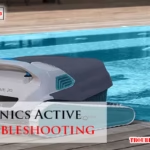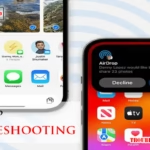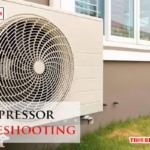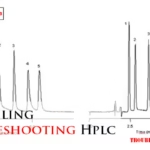Imagine this: it’s a sunny weekend, perfect for a barbecue with friends and family. You fire up your trusty Weber grill, ready to sizzle those steaks to perfection.
But wait—something’s not right. The grill isn’t heating as it should, or the flame is acting up. Frustration kicks in, right? But don’t worry; you’re not alone. Many Weber owners have faced similar hiccups, and there’s a straightforward path to resolving these issues.
In this guide, we’re diving into Weber troubleshooting tips that will help you get back to grilling without a hitch. Whether it’s a minor glitch or a perplexing problem, we’ve got solutions that will make you the grill master again. So, if you’re eager to save your barbecue day, read on and discover how you can fix your Weber grill with ease. Let’s turn that grilling frown upside down!
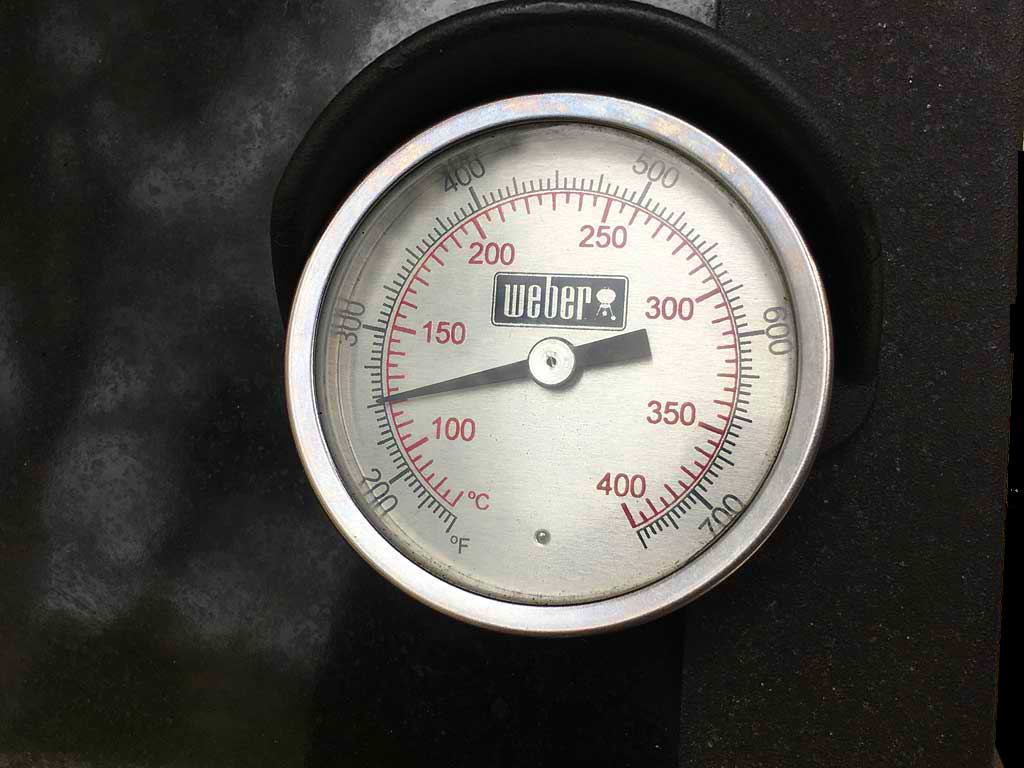
Credit: virtualwebergasgrill.com
Common Grill Issues
Grilling is a favorite pastime for many. Yet, even a Weber grill can face problems. Understanding these issues helps in quick troubleshooting. Proper maintenance prevents many common grill issues. Let’s explore some typical problems and their solutions.
Uneven Heat Distribution
Uneven heat can ruin your grilling experience. Cold spots leave food undercooked. Hot spots can burn it. Blocked burner tubes often cause this. Clean them regularly to ensure even heat. Check for damaged or misaligned burners. Adjust them to fix the heat distribution.
Flame Problems
Weak flames can hinder cooking. Check the gas supply first. Ensure the propane tank is not empty. Examine the regulator and hoses for leaks. Clean the burner ports if the flame is irregular. This helps maintain a steady flame.
Temperature Control Issues
Temperature control is vital for perfect grilling. A faulty thermometer can give wrong readings. Replace it if necessary. Ensure the lid fits snugly. Gaps can affect temperature control. Inspect the vents for blockages. Clear them for optimal airflow.
Gas Grill Troubleshooting
Weber gas grills sometimes face issues like uneven heating or ignition problems. Simple checks of gas connections and burner cleanliness often solve these issues. Regular maintenance ensures optimal performance and extends grill life.
Gas grills are a staple for any backyard barbecue enthusiast. But just like any appliance, they can sometimes encounter problems. Understanding how to troubleshoot common issues can save you time and frustration. Whether it’s a simple fix or something more complex, you can often handle the problem yourself with a little guidance.Ignition Failures
If your grill won’t ignite, it could be due to several reasons. Firstly, check if the gas tank is properly connected. Sometimes, a loose connection is all it takes to prevent the grill from lighting. Another common issue is the battery in the ignition system. Have you ever replaced it? If not, consider doing so. Additionally, ensure the grill is clean and free of debris. Dirt can obstruct the ignition system, making it difficult to light.Gas Leaks
Gas leaks are a serious concern and should be addressed immediately. One simple method to check for leaks is the soap and water test. Mix soap with water and apply it on the gas line connections. If bubbles appear, there’s a leak. Tighten the connections or replace the faulty parts. Have you ever smelled gas while grilling? If so, turn off the gas supply immediately and inspect the grill before using it again. Safety should always be your priority.Burner Blockages
Burner blockages can cause uneven cooking and flare-ups. If you notice your grill isn’t heating evenly, it might be time to clean the burners. Remove them and check for any clogs or debris. A wire brush can be handy here. Regular cleaning can prevent build-up and ensure optimal performance. How often do you clean your grill? Regular maintenance not only enhances its longevity but also improves the quality of your grilling. Troubleshooting might seem daunting at first, but with a few tips and tricks, you can handle most issues. By paying attention to these common problems, you can keep your grill running smoothly and enjoy perfectly cooked meals every time. Remember, a little maintenance goes a long way!Charcoal Grill Challenges
Charcoal grills are cherished for their ability to infuse food with that unique smoky flavor. However, the joy of grilling can quickly turn into frustration when faced with common charcoal grill challenges. Whether you’re a seasoned grill master or a weekend warrior, tackling these issues head-on can make all the difference in your grilling experience. Let’s dive into some frequent hiccups you might encounter.
Charcoal Not Lighting
Picture this: you’re ready to impress with your grilling skills, but the charcoal refuses to cooperate. It’s a common setback. One reason could be damp charcoal. Always store it in a dry place. Using a chimney starter can also be a game-changer. It helps ignite charcoal efficiently without the need for lighter fluid, which can alter the taste of your food.
Another tip is to ensure proper airflow. Is your grill’s bottom vent open? If not, you might be suffocating the fire. Let the air in, and watch those coals catch fire more easily.
Low Heat Output
You’ve lit the charcoal, but the heat isn’t enough to cook your food. Frustrating, right? Start by checking the amount of charcoal. A sparse layer won’t cut it. Adding more can help maintain a higher temperature.
Consider the arrangement. Spread the coals evenly for a consistent heat. Or, pile them up for direct high heat to sear that perfect steak. Adjust the vents to control the temperature. Open them for more heat; close them for less.
Ash Buildup
Over time, ash can accumulate, and it may seem trivial. But it can choke your grill’s airflow, affecting heat levels. Regular cleaning is key. Before each grilling session, remove excess ash from the last cook.
Invest in an ash tool or scraper for efficient cleaning. If you notice ash affecting airflow mid-cook, a quick clean can save your meal. Does your grill have an ash catcher? Empty it often to prevent buildup.
Grilling should be fun, not a hassle. What challenges have you faced with your charcoal grill? Share your tips and tricks to keep the flames roaring and the flavors sizzling!

Credit: www.youtube.com
Electric Grill Concerns
Weber electric grills sometimes face issues like uneven heating and power supply problems. Users often report faulty temperature controls. These concerns can usually be resolved through basic troubleshooting steps.
Electric grills are a fantastic tool for easy and efficient cooking. However, sometimes you might run into some issues that can be frustrating. Have you ever faced a problem with your electric grill and didn’t know where to start? Let’s dive into some common concerns and see how you can address them effectively.Power Supply Issues
First, check if your grill is properly plugged into the outlet. It sounds simple, but a loose connection can easily be overlooked. Next, inspect the power cord for any visible damage. A frayed or cut cord can prevent your grill from turning on. Consider trying another outlet to rule out any issues with the power source. This quick test can help confirm whether the problem lies with your grill or the outlet itself.Element Malfunctions
If your grill isn’t heating up, the heating element might be the culprit. Make sure it’s securely connected to the grill. Clean the element gently to remove any built-up residue. Over time, grease and food particles can affect performance. If cleaning doesn’t help, a replacement might be necessary. Contacting Weber’s support can provide guidance on obtaining and installing a new element.Thermostat Problems
Is your grill not reaching the desired temperature? The thermostat might be misreading the heat levels. Ensure it’s not obstructed by grease or debris. Regular cleaning can prevent inaccurate temperature readings. Test the thermostat by setting different temperatures. If the grill doesn’t respond correctly, consider consulting a professional to recalibrate or replace the thermostat. Have you experienced any of these issues with your Weber grill? Taking these steps can often resolve the problem quickly. Don’t let minor hiccups stop you from enjoying a perfectly grilled meal.Routine Maintenance Tips
Facing issues with your Weber grill? Routine checks can help. Clean the burner tubes and inspect the igniter. Check propane connections for leaks. These simple steps can prevent bigger problems and ensure your grill works smoothly. Regular maintenance keeps your grilling experience enjoyable and hassle-free.
Routine maintenance is the secret to keeping your Weber grill in top shape for many seasons. Regular care not only prolongs the life of your grill but also ensures a consistently excellent grilling experience. Without routine maintenance, you might find yourself facing unexpected issues at the worst possible times, like when you have guests over for a backyard barbecue. Let’s dive into the simple yet effective steps you can take to keep your Weber grill performing its best.Cleaning Techniques
Cleaning your Weber grill is crucial. It prevents grease build-up, which can lead to flare-ups. After each use, while the grill is still warm, use a grill brush to scrape off any food particles from the grates. Once a month, perform a deeper clean. Remove the grates and use warm soapy water to wash them thoroughly. Wipe down the inside of the lid and base to remove any residue. It’s surprising how much better your food will taste without old grease and burnt bits affecting the flavor.Inspecting Components
Regular inspection of your grill’s components can save you from unexpected breakdowns. Start by checking the burners for blockages. Clean them if necessary to ensure even flame distribution. Inspect the igniter for wear and tear. If it’s not sparking as it should, it might be time for a replacement. Look for rust or cracks in the grates and replace them if needed. A well-maintained grill performs better and lasts longer. Have you checked your grill components lately?Seasonal Care
Each season brings its own set of challenges for grill maintenance. During the summer, when your grill is in heavy use, keep an eye on the propane level or charcoal supply. It’s easy to run out during a big cookout. In the colder months, clean the grill thoroughly before storing it. Make sure it’s completely dry to prevent rust. Consider investing in a high-quality cover to protect it from the elements. Seasonal care ensures your grill is ready to fire up whenever you are. By following these routine maintenance tips, you can enjoy hassle-free grilling throughout the year. Are there any specific maintenance routines you swear by?Credit: socalgrillcleaning.com
When To Seek Professional Help
Your Weber grill is your backyard powerhouse, creating mouth-watering meals that bring joy to your family and friends. But even the best grills can experience hiccups. You’ve tried troubleshooting, but some problems seem too complicated. How do you know when it’s time to call in the pros? Let’s dive into when seeking professional help becomes necessary, ensuring your grill stays in top-notch condition.
Identifying Major Repairs
Some grill issues are easy to tackle with a wrench and a little patience. Others, not so much. If you notice persistent gas leaks or ignition problems that don’t resolve after basic fixes, it’s time to think bigger. Is your grill showing signs of rust or structural damage? These major repairs often require expert intervention.
Consider this: I once ignored a small gas leak, thinking I could handle it. It escalated, requiring costly repairs that a professional could have fixed early on. So, ask yourself, can you afford to ignore the warning signs?
Understanding Warranty Coverage
Your Weber grill likely comes with a warranty. Understanding what it covers can save you money. Is the ignition system failing within the warranty period? You may be eligible for free repairs.
Check the fine print. What parts are covered, and under what conditions? Knowing your warranty could mean the difference between a free fix and an expensive repair bill.
Finding Certified Technicians
When it’s time for professional help, you want someone who knows your grill inside and out. A certified technician has the expertise to diagnose complex issues quickly. They’re trained by Weber to understand the nuances of your grill model.
How do you find these experts? Start by visiting Weber’s official website for a list of certified technicians. You can also ask for recommendations from friends who own Weber grills. The right technician can make your grill feel brand new.
Remember, your grill is an investment. Protect it by knowing when to seek professional help. What’s more important, saving a few bucks or ensuring your grill’s longevity? The choice is yours.
Frequently Asked Questions
How Do I Fix Weber Grill Not Lighting?
Check the ignition system. Ensure the gas supply is on. Clean burner tubes and electrodes for better contact.
What Should I Do If My Weber Grill Is Overheating?
Reduce the burner flame settings. Check for blockages in vent holes. Ensure lid is not sealed too tight.
Why Is My Weber Grill Not Heating Evenly?
Inspect burner tubes for clogs. Clean grates and burners. Check gas flow and adjust settings as needed.
How Can I Stop My Weber Grill From Smoking Too Much?
Clean grease traps and grates. Check for excess food residue. Adjust airflow vents for better ventilation.
What To Do If Weber Grill Flame Is Yellow?
Check for blockages in burner. Clean burners and venturi tubes. Ensure proper gas pressure and ventilation.
Conclusion
Weber grilling issues can be frustrating. Solutions are usually simple. Regular maintenance helps prevent common problems. Check connections and clean parts often. Always follow safety guidelines. Your grill can last longer with proper care. Troubleshooting saves time and money. Keep a small toolkit handy for quick fixes.
Stay patient and enjoy the grilling season. Happy grilling!


